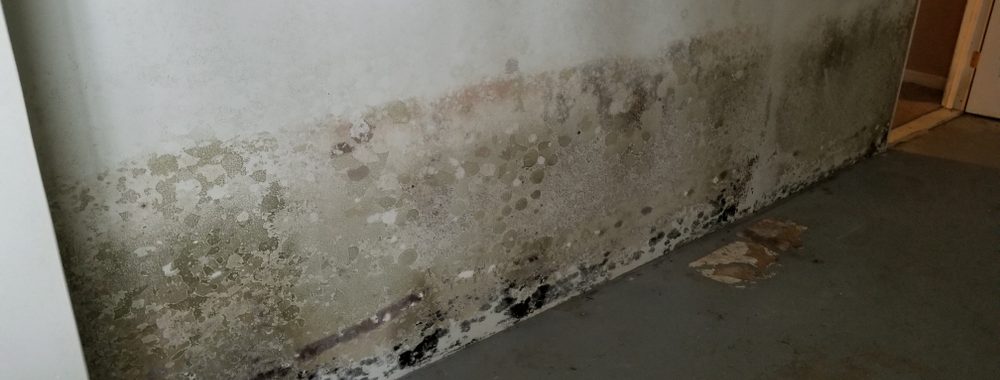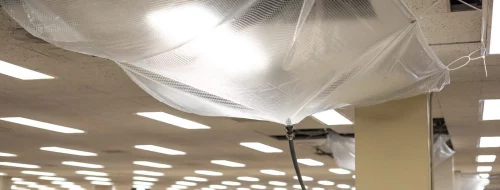Most homeowners and business owners are aware that mold is a common problem in basements. Basements provide a prime environment for mold growth because they typically don’t get much exposure to fresh air or light, and are often damp. What’s lesser-known is that mold can travel from basements to the upstairs of homes and buildings.
Basements are very common in the greater Chicago area, so it’s important to understand the causes and fixes to mold issues if you live in the city or any of its suburbs (Arlington Heights, Berwyn, Des Plaines, Evanston, Mount Prospect, Grayslake, Mundelein, Libertyville, Oak Park, Palatine, Wheaton, Naperville, Waukegan, Schaumburg, or Skokie).
How Mold Spreads
Mold spores are microscopic, so you can’t see them in the air. Their small size and light weight make it easy for the air to carry them. Because the spores are carried by air, they can circulate through air ducts in your heating and cooling system, polluting the air you breathe on floors above the basement.
Additionally, mold can spread through parts of your home like the inside of walls and ceilings, or under carpet. If the ceiling of your basement is affected, it can spread through the wood and onto the floor or walls above it.
Unfortunately, mold can often go undetected for a length of time before anyone notices it. Although mold is fairly ubiquitous in homes, good ventilation and dry air help to keep them at bay so that they don’t land on surfaces and grow to concerning levels.
How Mold Can Affect Health
Although not everyone will have a noticeable reaction to mold, exposure can cause serious risks, especially to children, the elderly, and those with asthma and mold allergies. Symptoms include asthma, eye and skin irritation, and respiratory issues such as coughing, sneezing, and shortness of breath.
How to Identify Mold
There are hundreds of types of mold, and they may appear in different colors and textures, ranging from white and cottony to a brown velvet-like consistency. Some have an apparent odor, while others do not.
Mold also varies in toxicity. Stachybotrys is the mold you may have heard about causing severe health problems. It is black, has a slimy texture, and requires an abundance of moisture to grow.
Why You Shouldn’t Remove Mold Yourself
You may instinctively try mold removal in your basement as a DIY project, but it’s not an easy or safe process if you aren’t a professional. Many home and business owners will use household products like bleach to clean mold from surfaces, but trying to do it yourself may not be effective, and could actually make matters worse. Here’s why.
- You can end up spreading it. When you scrub or spray surfaces improperly, the mold spores will disperse into the surrounding air. As mentioned above, those spores can travel from the basement to other surfaces or through your air ducts and drop on locations in other rooms of your home.
- Mold is a hazardous substance. Mold exposure is a health risk, and when you’re cleaning it, you are subjecting yourself to the mold you’re trying to eliminate.
- You likely don’t have the right equipment and products. Experts don special face masks meant to filter out mold spores along with gloves and eye protection. They will use air scrubbers, fans, and sophisticated filters to properly dry and ventilate the room, and know exactly how to use products to ensure mold is killed and prevented from growing again in your basement
The first step in mold remediation is to contact a professional who can do a full assessment of your home, clean existing mold, and prevent mold from traveling from your basement to the upstairs.
What Mold Remediation Professionals Do
When you hire a company to conduct professional mold remediation, the technicians will first assess the extent of the mold infestation. They will also find the root cause, which is critical to ensuring the mold is eliminated and prevented from growing again. Mold is often a manifestation of another problem such as a leaking pipe, flooding, excessive moisture in the air, or poor ventilation.
Once the source is known and fixed, the crew will work to contain the mold by using negative air chambers. They will also filter the air using air scrubbers and special HEPA filters designed for mold removal. Next comes the process of cleaning and removing mold from surfaces. Special equipment and chemicals are applied to kill all mold spores. Lastly, the company will provide rebuild and repair any damage that was done to the structure of your home or business.
Who to Call for Help with A Moldy Illinois Basement
If you find mold in your home or business, you may be tempted to remove it yourself. However, you could put yourself, your family, or your employees at risk by doing so. Make sure you completely get rid of mold and prevent it from coming back by hiring the experts at McMahon Services. Let the professional identify the underlying issue and effectively clear your home of mold. Contact us for an estimate today.








0 Comments